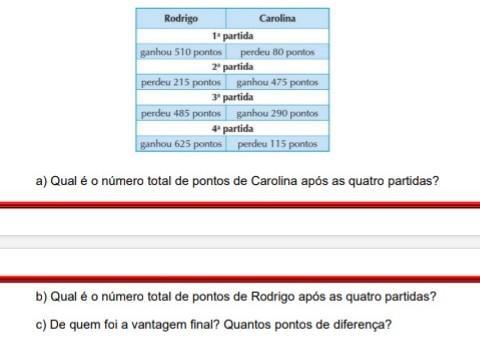138. Sabendo que o polinômio p(x) = x3 – 6x2 + 3x + 10 é divisível por h(x) = x - 2, resolva a equação x3 – 6x2 + 3x + 10 = 0
-
Assunto:
Matemática -
Autor:
gizmo85 -
Criado em:
1 ano atrás
Respostas 1
[tex]\displaystyle \sf p(x) =x^3-6x^2+3x+10 \\\\\ h(x) = x-2[/tex]
se p(x) é divisível por h(x), então :
[tex]\sf (x-2)\cdot(ax^2 +bx+c) = p(x)[/tex]
[tex]\displaystyle \sf (x-2)\cdot (ax^2+bx+c )=x^3-6x^2+3x+10 \\\\ ax^3+bx^2+cx -2ax^2-2bx-2c = x^3-6x^2+3x+10 \\\\ ax^3+(b-2a)x^2+(c-2b)x-2x = x^3-6x^2+3x+10 \\\\[/tex]
Para ocorra a igualdade dos polinômios os seus coeficientes devem ser iguais, ou seja :
[tex]\displaystyle \sf a = 1 \\\\ b-2a = -6 \to b = -6+2 \to b = -4 \\\\ -2c = 10 \to c = - 5 \\\\ Da{\'i}} : \\\\ (x-2)\cdot (x^2-4x-5) = 0[/tex]
[tex]\sf (x-2)\cdot(x+1)\cdot(x-5) = 0 \\\\ x-2 = 0 \to x= 2 \\\\ x+1=0 \to x=-1 \\\\ x-5 = 0 \to x=5 \\\\ Solu{\c c}{\~o}es : \\\\ \boxed{\sf x= \{-1, 2 , 5\}}[/tex]
-
Autor:
pippy0e0n
-
Avalie uma resposta:
4


